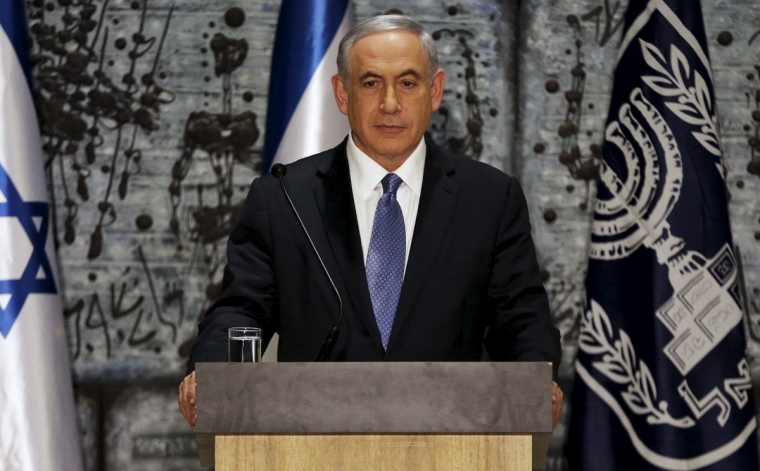Israel's dilemma: Accept Iran nuke deal or Saudi permission to bomb Iran

JERUSALEM/PARIS (Christian Examiner) -- Israel's Prime Minister Benjamin Netanyahu may be resigned to accept a deal that would leave Iran with some uranium enrichment capability -- a compromise lost in "fine print" earlier this month when he addressed the U.S. Congress.
In Washington March 3 he spoke against Iran keeping enough uranium centrifuges to possibly build a bomb -- but now he is talking with negotiators, according to Reuters.
The news agency reports the Israeli leader and his envoy, "faced with Western impatience and White House wrath over the calls to avoid a 'very bad deal'" – are taking a closer look at a line in his early March address urging President Barack Obama to seek "a better deal" that "Israel and its neighbors may not like, but with which we could live, literally."
This news comes a month after an Israeli TV station reported Saudi Arabia would let Israeli fighter jets have access to its airspace in order to attack Iran's nuclear program if needed.
The terms of such an agreement were highlighted by an unnamed senior European source, the station reported, and were conditional -- on Israel making "some kind of progress in peace talks with the Palestinians," Times of Israel reported.
"The Saudi authorities are completely coordinated with Israel on all matters related to Iran," the European official in Brussels said in the report.
Jerusalem and Riyadh do not have diplomatic ties, but both are enemies of Iran. By using Saudi airspace, Israeli jet fighters would be able to reach Iran more quickly without having to fly around the Persian Gulf.
Netanyahu told MSNBC after he won a fourth term in Israel's March 17 elections, that Israel and "like-minded" Arab states might be willing for Iran to keep some of its uranium centrifuges -- perhaps 6,500 as opposed to the 9,000 Iran said it wants to keep to process uranium to energy-yielding purity.
A senior Israeli official told Reuters he was undecided about Netanyahu's position: "Would Bibi [Netanhayu] go to war over 5,000 centrifuges? I'm not so sure."
Israel, Saudi Arabi, France and the U.S. Congress have all raised concerns about any deal involving President Barack Obama and his administration that might allow Iran to develop a nuclear weapons capability in the future.
The United States and Iran resumed talks today and are expected to close a deal before a March 31 deadline.